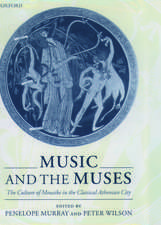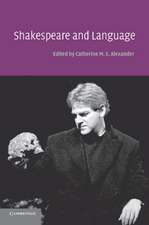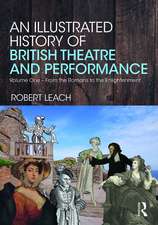Shakespeare and the Power of the Face
Autor James A. Knappen Limba Engleză Paperback – 12 dec 2019
| Toate formatele și edițiile | Preț | Express |
|---|---|---|
| Paperback (1) | 386.54 lei 6-8 săpt. | |
| Taylor & Francis – 12 dec 2019 | 386.54 lei 6-8 săpt. | |
| Hardback (1) | 765.84 lei 6-8 săpt. | |
| Taylor & Francis – 28 aug 2015 | 765.84 lei 6-8 săpt. |
Preț: 386.54 lei
Nou
Puncte Express: 580
Preț estimativ în valută:
74.03€ • 76.27$ • 62.01£
74.03€ • 76.27$ • 62.01£
Carte tipărită la comandă
Livrare economică 25 februarie-11 martie
Preluare comenzi: 021 569.72.76
Specificații
ISBN-13: 9780367879976
ISBN-10: 0367879972
Pagini: 222
Dimensiuni: 156 x 234 x 20 mm
Greutate: 0.45 kg
Ediția:1
Editura: Taylor & Francis
Colecția Routledge
Locul publicării:Oxford, United Kingdom
ISBN-10: 0367879972
Pagini: 222
Dimensiuni: 156 x 234 x 20 mm
Greutate: 0.45 kg
Ediția:1
Editura: Taylor & Francis
Colecția Routledge
Locul publicării:Oxford, United Kingdom
Cuprins
Shakespeare and the power of the face. Part 1 Powerful Faces: 'Thy face is mine': faces and fascination in Shakespeare's plays. Fashioning the face: embodiment and desire in early modern poetry. Facing marital cruelty in Shakespeare's The Taming of the Shrew and early modern London. Part 2 Signifying Faces: The two faces of Othello. Facing King Lear. Complex complexions: the facial signification of the black other in Lust's Dominion. Part 3 Staged Faces 'I knew by his face there was something in him': buried stage directions and authorial control. The play of looks: audience and the force of the early modern face. 'The counterfeit presentment of two brothers': the power of portraits in Hamlet. 'This painting wherein you see me smeared': Francis Bacon, Coriolanus, and the brutality of facialization.
Notă biografică
James A. Knapp is Associate Professor and Edward Surtz, S.J. Professor of English, Loyola University Chicago. He is also author of Illustrating the Past in Early Modern England and Image Ethics in Shakespeare and Spenser.
Recenzii
'At once matter and metaphor, inside and outside, nature and art, self and other, the face is a crossroads; in their own facial theory and practice, the early moderns left us a window to their souls and a map of their world. With remarkable depth and methodological range, these essays chart that terrain, revealing the early modern face as a focal point of ideological negotiation, ethical encounter, and theatrical exchange. As unique, rich, and varied as its object of study, Shakespeare and the Power of the Face opens new avenues of thought and research that have been staring, so to speak, right at us.' Richard Preiss, author of Clowning and Authorship in Early Modern Theatre
"The collection, complemented by an extensive bibliography, is structured to appeal to both early modern scholars and students in many fields including theatre, literature, and cultural studies." - Bríd Phillips, The University of Western Australia
"The collection, complemented by an extensive bibliography, is structured to appeal to both early modern scholars and students in many fields including theatre, literature, and cultural studies." - Bríd Phillips, The University of Western Australia
Descriere
As contributors to this volume prove, Shakespeare’s language of the self relies on descriptions of and reactions to facial expressions and features. An analysis of Shakespeare’s treatment of faces has implications for our understanding of the context in which he wrote, and for the ongoing interpretation and production of the plays. By bringing toge




























